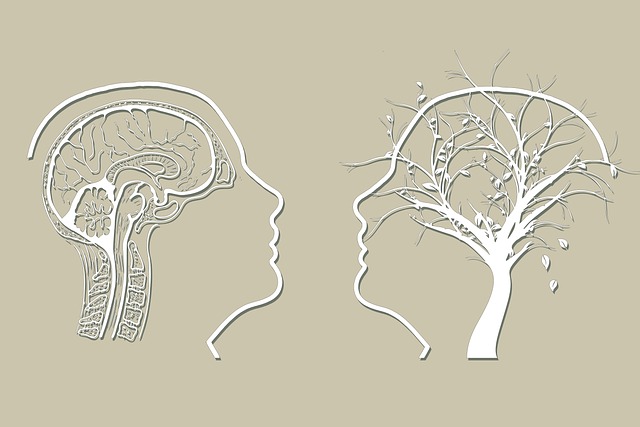Westminster Conduct Disorder Therapy focuses on emotion regulation as a powerful tool to manage this complex condition. Through mindfulness, coping skills, and techniques like cognitive reframing, individuals learn to control intense emotions and reduce disruptive behaviors. This holistic approach integrates diverse strategies, cultural competency training, and personalized care, addressing root causes and fostering emotional intelligence for long-term behavioral change in mental health care.
Emotion regulation techniques play a pivotal role in managing conduct disorder, as demonstrated by research in Westminster Conduct Disorder Therapy. This article delves into the significance of emotion regulation and its profound impact on disruptive behaviors. We explore evidence-based teaching strategies that empower individuals to effectively manage their emotions, offering insights into fostering long-term behavioral change within the context of Westminster Conduct Disorder Therapy. By understanding these techniques, professionals can enhance therapeutic outcomes for those facing conduct challenges.
- Understanding Emotion Regulation and its Impact on Conduct Disorder
- Teaching Techniques for Effective Emotion Management
- Integrating Strategies for Long-Term Behavioral Change in Westminster Conduct Disorder Therapy
Understanding Emotion Regulation and its Impact on Conduct Disorder

Emotion regulation is a vital skill that plays a significant role in managing and understanding conduct disorder. Conduct disorder, often diagnosed in childhood or adolescence, is characterized by persistent and repeated violations of societal rules and rights of others. By teaching individuals effective emotion regulation techniques, Westminster Conduct Disorder Therapy aims to empower those affected to better cope with their emotions and behaviors.
This approach recognizes that emotional intelligence and empathy building strategies are essential tools for managing conduct disorder. Healthcare providers involved in burnout prevention strategies must understand that teaching individuals to recognize and regulate their emotions can significantly impact their overall well-being and social interactions. Through these techniques, individuals learn to identify triggers, manage intense feelings, and respond adaptively, potentially reducing disruptive behaviors associated with conduct disorder.
Teaching Techniques for Effective Emotion Management

Teaching techniques for effective emotion management is a crucial aspect of Westminster Conduct Disorder Therapy. By equipping individuals with coping skills, therapy sessions aim to empower them to navigate and regulate their emotional responses. One powerful tool in this process is mindfulness meditation, which helps individuals become more aware of their emotions and teaches them to accept and manage them without judgment. Through guided meditations, clients learn to focus on the present moment, observe their thoughts and feelings without attachment, and develop a greater sense of self-control.
Additionally, the development of coping skills plays a significant role in emotion regulation. Therapists can incorporate various strategies such as cognitive reframing, deep breathing exercises, and positive self-talk into their teaching. These techniques enable individuals to challenge negative thought patterns, reduce stress, and foster a sense of calm. Depression prevention becomes a by-product of this process as clients gain the emotional resilience needed to better cope with challenging situations, thereby minimizing the risk of depressive episodes.
Integrating Strategies for Long-Term Behavioral Change in Westminster Conduct Disorder Therapy

In Westminster Conduct Disorder Therapy, integrating diverse emotion regulation techniques is key to fostering long-term behavioral change. Effective strategies go beyond mere intervention; they aim to empower individuals with sustainable coping mechanisms that transcend situational fixes. By combining evidence-based practices such as Self-Awareness Exercises and Stress Management Workshops, therapists create a holistic environment conducive to profound personal growth. These integrated approaches not only address the symptoms but also target the root causes, ensuring that clients develop enhanced emotional intelligence and resilience.
The role of the healthcare provider is pivotal in this process. Cultural Competency Training equips professionals with the skills to tailor these techniques to diverse backgrounds, ensuring inclusivity and effectiveness. By incorporating cultural sensitivity into Westminster Conduct Disorder Therapy, practitioners can facilitate meaningful change, enabling individuals to navigate life’s challenges with greater ease and emotional balance. This personalized approach holds the potential to revolutionize mental health care, making it more accessible and impactful for all.
Emotion regulation techniques offer a promising approach to addressing Conduct Disorder, as evidenced by Westminster Conduct Disorder Therapy’s success. By teaching individuals effective strategies for managing their emotions, we can foster long-term behavioral change and significantly improve outcomes. Integrating these techniques into therapy provides a comprehensive framework for helping folks navigate and transform their emotional responses, ultimately leading to more positive interactions and a better quality of life.














